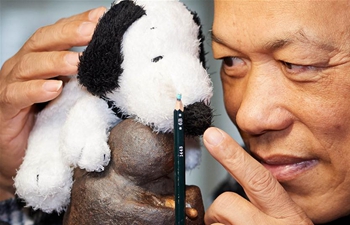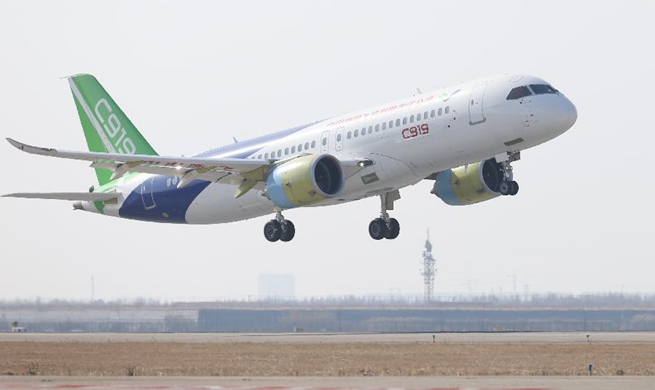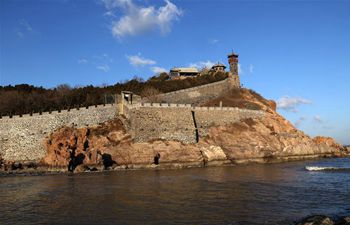LONDON, Dec.18 (Xinhua) -- British Prime Minister Theresa May Monday called for an end to threats of violence as passions over Brexit spill over into intimidation.
May's plea came as she made a statement to MPs in the House of Commons on the latest developments on negotiations with the European Union over Britain's departure from the bloc.
Last week in a debate at Westminster, a group of Conservative MPs voted against the government, inflicting the first defeat for May in the progress of a bill to achieve Brexit. A number of those MPs who voted against their own party complained of receiving threats, and also a lashing in pro-Brexit newspapers.
May told a crowded House of Commons: "We are dealing with questions of great significance to our country's future, so it is natural that there are many strongly held views on all sides of this chamber.
"It is right and proper that we should debate them - and do so with all the passion and conviction that makes our democracy what it is. But there can never be a place for the threats of violence and intimidation against some MPs that we have seen in recent days."
Meanwhile, May said Europeans arriving after Britain leaves the European Union in March, 2019 will have to register during a two-year transition period.
She insisted that Britain will leave as planned in March, 2019 and this will be followed by a strictly time-limited implementation period of up to two years.
"We would not be in the Single Market or the Customs Union, as we will have left the EU.," said May, "But we would propose that our access to one another's markets would continue as now, while we prepare and implement the new processes and new systems that will underpin our future partnership.
"During this period we intend to register new arrivals from the EU as preparation for our future immigration system. And we will prepare for our future independent trade policy by negotiating, and where possible signing, trade deals with third countries, which could come into force after the conclusion of the implementation period."
May told MPs that the European Council also confirmed on Friday that discussions will now begin on trade and the future security partnership with Britain.
Referring to the so-called EU divorce bill of between 35 billion pounds and 39 billion pounds (47 billion U.S. dollars and 52.3 billion U.S. dollars), May said it was the equivalent of around four years of Britain's current budget contribution. Half of the money paid to Europe would be covered by the two-year implementation period.
On Northern Ireland, which will share an EU border with the Irish Republic when Britain leaves, May said the government was committed to maintaining the Common Travel Area and to avoid a hard border.
"We will work closer than ever with all Northern Irish parties and the Irish government as we now enter the second phase of the negotiations," she said.
Jeremy Corbyn, leader of the main opposition Labour Party, told May the agreement on what had been negotiated so far with the EU was vague and had been cobbled together, saying it underlined sharp divisions over Brexit within May's front bench cabinet of ministers.

















